
Which Writers Will We Remember?
Saul Bellow gets a stamp, and speculating on the odds of enduring literary legacies.
So, Saul Bellow is getting a stamp.
My readers who followed me over from the Chicago Tribune may recognize our fair city in the background. Bellow passed away in 2005 (on my birthday, no less), and at the time of his passing was, undeniably, as Jonathan Yardley put it in his appreciation one of the “giants” who came out of the of mid-20th century America. Bellow won the Pulitzer, three National Book Awards, and a little something called the Nobel Prize. He wrote numerous books considered classics: The Adventures of Augie March, Henderson the Rain King, Herzog, and Seize the Day among others.
Yardley, writing about Bellow’s ambitions to write a “great American novel” with Angie March, describes what made Bellow’s work stand out in his moment:
It seems undeniable that Bellow is a writer who will be “remembered.” The man is on a stamp, after all, part of the USPS “Literary Arts” series alongside others like “Twain, Steinbeck, Faulkner, Dorothy Parker, James Baldwin, and Flannery O’Connor, among many others.
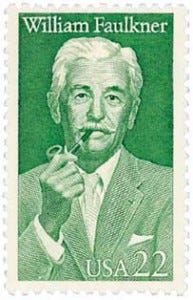

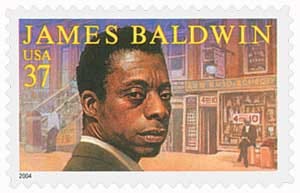

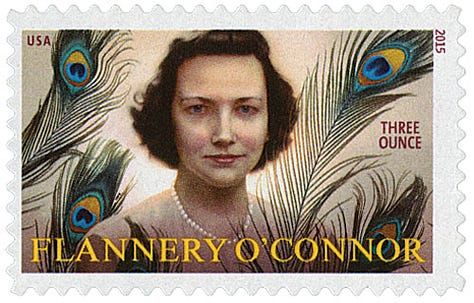
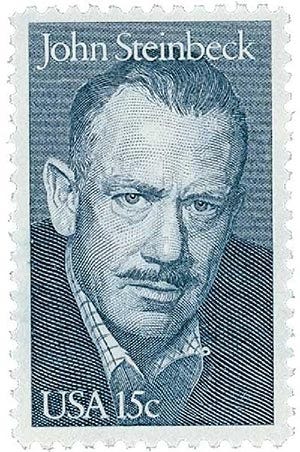
Despite all this evidence, I’m actually not sure that Saul Bellow is a writer who is still going to be talked about 40, 50, 100 years from now. A Pulitzer Prize is no guarantee of immortality, as Martin Flavin (winner in 1943) and A.B. Guthrie (1950) will tell you. Sure, that Nobel weighs heavy, but is another American winner of the prize, Pearl Buck (1938), widely read and discussed today?
For some reason, my gut says that Bellow is not necessarily a writer who will endure beyond a name in history, as opposed to a writer who is engaged with regularly. As someone who gets sent lists of books people are reading, it seems as though I rarely see Bellow in the mix, even as other writers from further back (George Orwell, anyone?) are common.
It should go without saying that the quality of a writer’s books are only incidentally related to whether or not they are remembered. Sure, writing a great book helps, but while Ayn Rand and Upton Sinclair’s novels may be interesting and meaningful for their representations of philosophy/politics, they are not read and discussed today because they are “great.”
Bellow’s novels are great, I think so anyway, an opinion a lot of writer types hold, but paradoxically, I think this may be one of the reasons he may not be remembered. So much of Bellow’s DNA has seeped into American fiction that Bellow’s own work does not necessarily stand out from the crowd that he helped birth.
Maybe I should see this as a more meaningful form of endurance than having a book that people read generation after generation in school. I don’t know. I’m thinking out loud here. Please feel free to think along with me.
I don’t think I am necessarily obsessed with trying to understand why some books and writers endure while others are forgotten, but I can’t help but note it’s a subject I come around to with some frequency, as I did here writing about the almost totally forgotten work of Thomas Rogers.
But honestly, it’s sort of fun to to speculate about this stuff, so that’s what I’m going to do for some of the major (relatively) recently departed authors by giving odds that they will be remembered and read 50-75 years from now, several generations removed from the time of their writing. I hope you’ll join in with your thoughts on my odds, as well as opinions on any important writers I might have missed. Remember, it’s all for fun we’re discussing the work, not the people, and I have no idea what I’m talking about.
Toni Morrison (Odds of being read and remembered: 1:2)
I think Toni Morrison is a permanent fixture of the American literary firmament for the foreseeable future for all kinds of reasons, the quality of her books, their sui generis nature, the prizes she won, the fact that she is still frequently read and studied and for having a central masterpiece, Beloved, among many other highly accomplished works. It all points to an enduring legacy.
John Updike (10-1)
Honestly, these odds might be a bit kind to Updike’s chances, as he passed away four years after Bellow, but has faded considerably more. Part of it may be Updike’s prolificness as both a novelist and critic. He wrote a lot of stuff and there is no singular work that stands above the others. His best known and probably most read novel(s), his Rabbit Angstrom series, were popular because of his ability to capture the zeitgeist, but I’m not sure readers are so into that zeitgeist anymore. Perhaps, over time, in the way that Fitzgerald’s The Great Gatsby stand in for what we know about The Jazz Age, Updike will be the go-to for suburban American ennui, but also we have no shortage of those books.
Joan Didion (3-1)
I think Didion has a much stronger likelihood of being read and remembered that someone like Updike because she has become an icon in ways Updike never achieved. Didion’s writing is worthy on it’s own, but for many readers, she also represents something beyond her writing similar to the way Sylvia Plath and Virginia Woolf are recognized for what they represent in their eras in addition to the high quality of their work.
Cormac McCarthy (6-1)
In a way, McCarthy’s career was already resurrected once in the 1980s when he finally broke beyond niche audiences, and this is what I see for his future, fallow periods followed by generational rediscovery as someone stumbles across Blood Meridian, and wonders WTF?
Martin Amis (12-1)
Amis is another writer who is greatly admired by other writers, but the uneven nature of his work makes one wonder if he’ll be remembered as a great writer who should be remembered. That said, he’s the source of some of the most potent work I’ve read in my fifty-three years.
Barbara Ehrenreich (3-1)
A different kind of writer than those above, but I’m convinced generation after generation will return to works like Nickel and Dime One Not) Getting by in America, Fear of Falling: The Inner Life of the Middle Class, and Bright Sided: How the Relentless Pursuit of Positive Thinking Undermined America, and see that everything they’re experiencing was already covered, and the persistence of these problems is not because we had a hard time recognizing their origins.
Beverly Cleary/Eric Carle (1-10)
The odds are strong that these two writers of enduring books for children, like Cleary’s Ramona books and The Mouse and the Motorcycle, and Carle’s The Very Hungry Caterpillar, will continue to be read. Heck they’ve already endured longer than I’ve been alive. What could possibly send them into oblivion at this point?
Who do you think will be remembered? Who is well known now, but might be forgotten?
Links
At the Chicago Tribune this week I sing the praises of Verified: How to Think Straight, Get Duped Less, and Make Better Decisions About What to Believe by Mike Caulfield and Sam Wineberg. I’ve used Caulfield’s SIFT method for years to keep myself from falling for misinformation online. Every student in the country should be learning this stuff.
Lots of tempting stuff in LitHub’s list of 25 new books released this week. The New York Times has nine books the think deserve your notice.
The Hugo Award winners were announced.
, who helps me out with content here on Wednesdays has some books he’s been working on that you might be interested in.Ever wonder how books are organized by category?
goes through the world of BISACS at her newsletter and explains how those Amazon categories are so strange.At his newsletter
amusingly dissects the various ways that authorial identity and intention are used and abused in today’s discourse culture.At McSweeney’s, Charlie Brown’s mom has something to say about her son’s Halloween haul: “A Letter to the Parents Who Gave My Son Charlie a Bunch of Rocks for Halloween” by Patrick Coyne.
Recommendations
1. The Great Man Theory by Teddy Wayne
2. Luster by Raven Leilani
3. Pale Fire by Vladimir Nabokov
4. The Bee Sting by Paul Murray
5. Swing Time by Zadie Smith
Livvy P. - Tuscaloosa, AL
I think any book is going to work for this particular reader, so I’m going to my shelf and seeing what one feels right at this time and I’m landing on a coming-of-age novel by David Mitchell Black Swan Green.1
That’s all he (he being me) for this week. I’ll see you next week, same time, same bat newsletter.
JW
The Biblioracle
All books linked throughout the newsletter go to The Biblioracle Recommends bookstore at Bookshop.org. Affiliate proceeds, plus a personal matching donation of my own, go to Chicago’s Open Books and the Teacher Salary Project, which is advocating to establish a federal minimum salary for teachers of $60,000 per year. Affiliate income is $254.20 for the year.

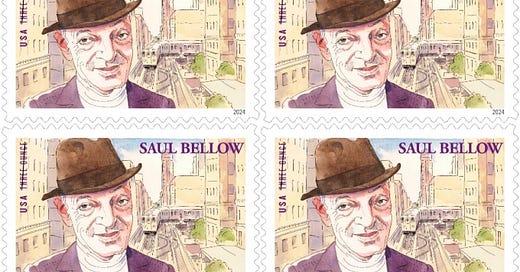



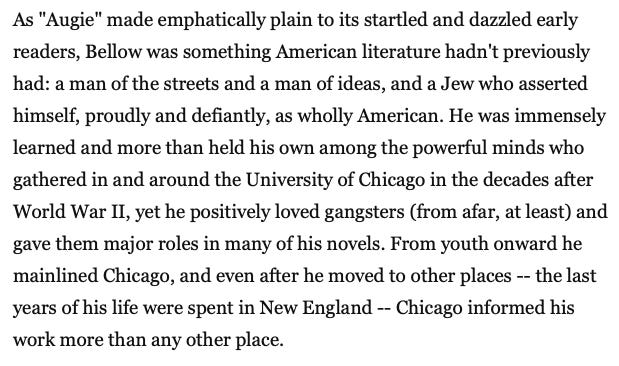
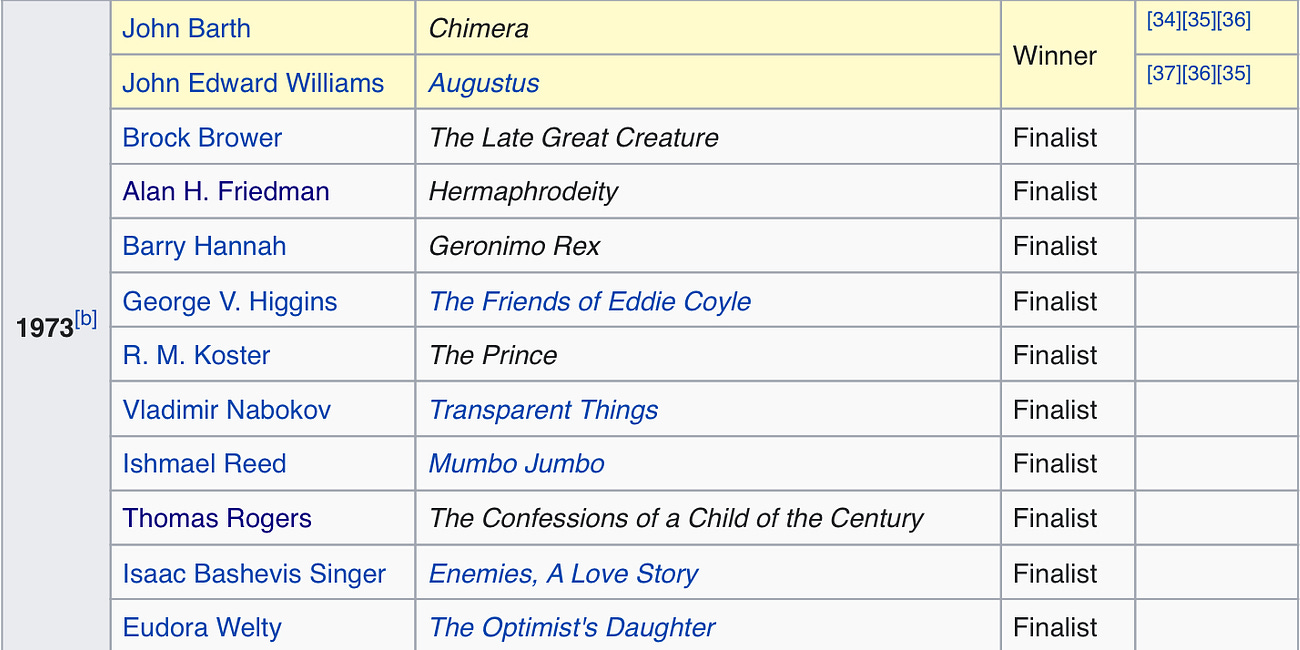





I generally agree with your sense of who will last. I was a huge Bellow fan in my 20s, but like you--and while I think he deserved his accolades--I don’t see him being a top read. Same with Updike. For me past of the reason is race and class. As a Black man, I eventually tired of the strata of people they focused on.
Several writers you don’t mention l think will continue to be read: Octavia Butler comes strongly to mind, and so does Vonnegut. In very different ways, they both get not only to a broader swath of humanity but also to human conundrums that run more deeply: our tendency toward self destruction but also our tenacious capacity for love, hope, care for one another. A third writer I would add is Ursula Le Guin, who deals in stunningly original ways with similar themes. These three are also have incredibly original writing styles. Their novels ask the big questions and none of them offer easy answers.
Chances of David Foster Wallace being remembered by segment A of the future reading population: 3-1.
Chances of segment B proclaiming at length, at parties, at funerals, projecting it onto the moon, that they've never even heard of the man, never mind read his infinite warblings: bookies are no longer taking bets.